Karma-Yoga and the Challenge of Integrity in a Postmodern World
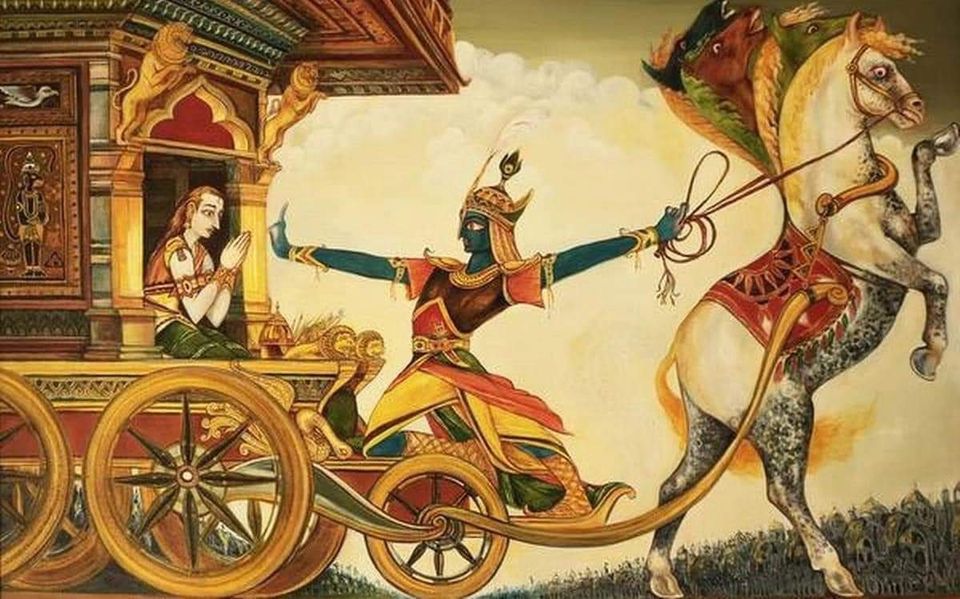
Chapter 3 passage 1 [3.1-2]:
- Arjuna is confused about what was definitively taught (in Chapter 2).
- If buddhi is superior to Karma (e.g. in 2.49 Krishna unambiguously says that) why does Krishna insist that Arjuna engage in this ghastly karma (of violence).
- Buddhi is a reference to the last passage of chapter two [2.54-72] a positioned attained “when the buddhi crosses beyond the thicket of illusion” [2.52] thus, entering the state of “yoga” defined as a buddhi unmoved by and indifferent to material acquisition [2.53]. Such a fixed buddhi [2.54] is a state of prasada— grace &/or purity [2.64] —that frees the mind from suffering thus securing the fixed status of the buddhi [2.65]. This enlightened wisdom faculty (buddhi) is generally characterized by its withdrawal of the senses from the outer world toward the inner world [e.g. 2.69-70] where they (the senses) rest due to “seeing the higher” therein [2.59].
- For Arjuna then, buddhi implies a lifestyle of withdrawal— say monasticism of asceticism— and not warfare. Thus his confusion about how buddhi and karma which appear to him mutually exclusive, can be reconciled [3.2]
Passage 2 [3.3-8]:
- Krishna admits to speaking of two distinct paths (yoga) according to two distinct nistha (stableness, i.e. internal qualification). One path for the samkhyas called jnana-yoga [2.11-30]; and another path for the yogins called karma-yoga [or buddhi-yoga in Chapter 2.39-53].
- It’s clear that Krsna is responding to Arjuna’s interpretation of buddhi as wtihdrawal from the world (social life) and does not favor it because:
- Non-action (esp. at a time when one’s duty is upon them) doesn’t free them from consequences [3.4]
- Nor does taking sannyasa (i.e. a social position wherein one presents oneself as monk/ascetic) invariably lead to spiritual perfection (siddhi) a common belief [3.4]
- As long as we have a body we’re forced to do some sort of action by the forces of nature (goodness-passion-ignorance) [3.5]; so why not act in a position of integrity?
- If one withdraws externally, but internally is attached to the external world, then such external withdrawal is false behavior (mithyAchara). The blatant incoherence with inner-mind and outer-body is essentially hypocrisy [3.6]
- Better than this false behavior is karma-yoga:
- Wherein there’s engagement in the outer world according to one’s vocation, but detachment internally, i.e. one does not allow one’s inner-space to be cluttered, hi-jacked, assimilated, arrested by externals. This inward alertness (buddhi) whilst engaging externally is far superior [3.7] and practical insofar as maintaining the body is concern [3.8]
Reconciling the tension between inner and outer life is an archetypal, and therefore, eternal conflict for humanity. We tend to process the two as mutually exclusive and thus withdraw from the world practically (spiritual bypass) or else resign ourselves to worldliness (bypass the spiritual)!
There’s a third way, a “middle path,” that engages in the world with inner alertness and evenness of mind so that the inner-world remains independent of external circumstance even admist them.
There is an issue here for postmodern humanity. This passage calls for honesty—defined here as a coherence between how you show up to the world (svadharma) and your nature (svabhava), a theme encountered earlier [2.31-37]. This is challenging for postmodern humanity whose natures (svabhava) suffer severe distortion because of absorption in reality television (FB, Twitter, IG, TikTok, Video Games, Netflix, Amazon Prime, MSM, Alternative Media, etc. etc.) and the artificial societal imposition that has humanity thinking they must care for everything in the entire world (a Godlike feat, and therefore utterly unattainable for any human).
Due to this severe distortion in nature in tandem with the artificial societal imposition of “concern for everything”, its unclear for a good portion of postmodern humanity how to show up to the world? What is their vocation and unique contribution to their communities and societies? Explains the rampant nihilism truly (think of all the memes we find ourselves indulging these days).Integrity or honesty as defined herein is a near impossibility. We can “advocate” for a thing one day (so long as its trendy) and forget about it the next week after its out of the news cycle. With this level of chaos internally, applying karma-yoga as taught by Krishna will be extremely challenging. Some level of internal stability in terms of coherence between what we are (svabhva) and what we do (svadharma) is required to focus on that deeper application of upbuilding the awareness through karma-yoga.
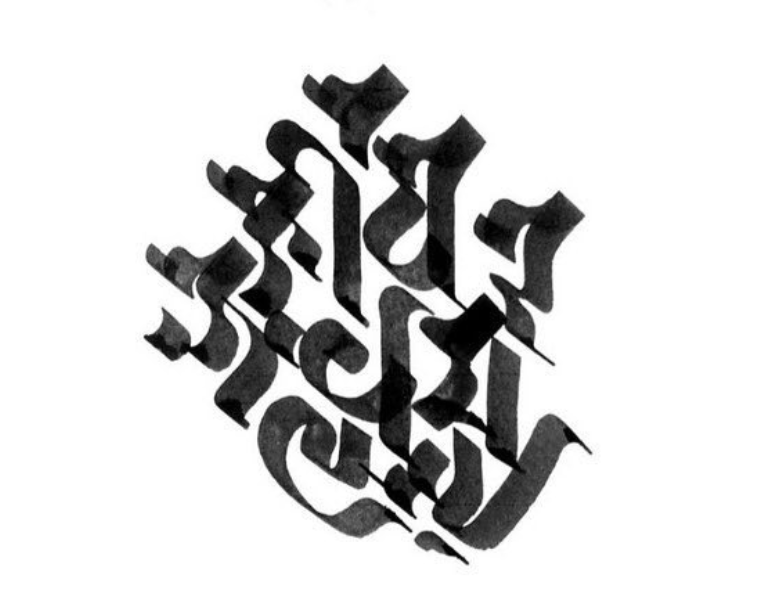
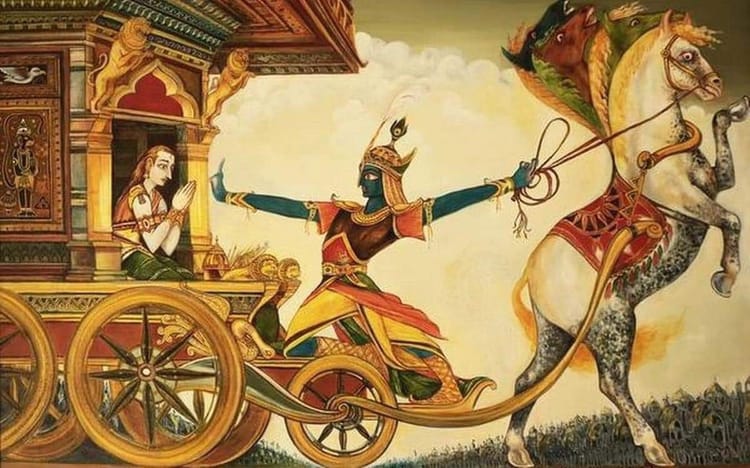
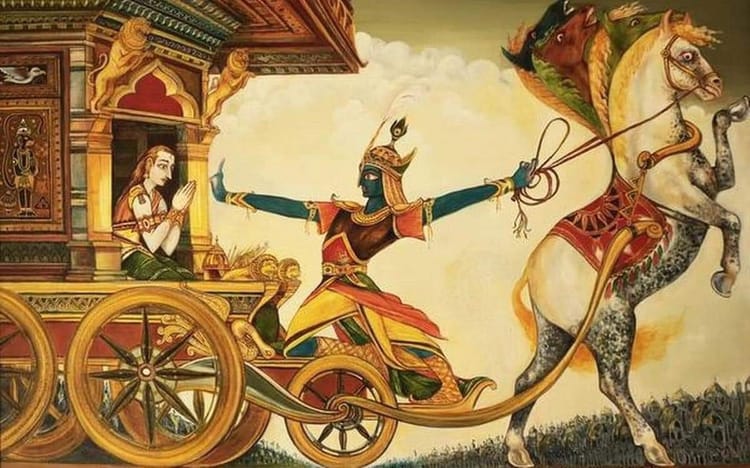
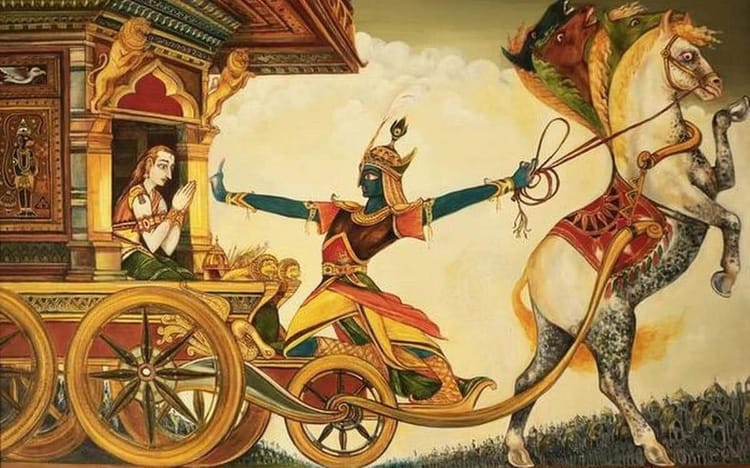
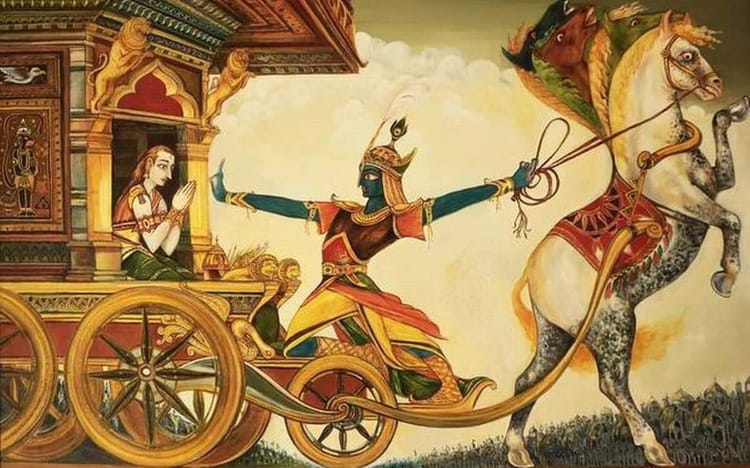
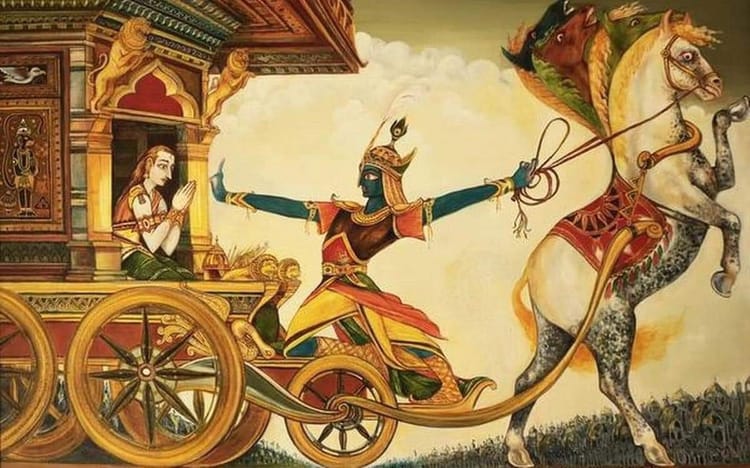
Member discussion